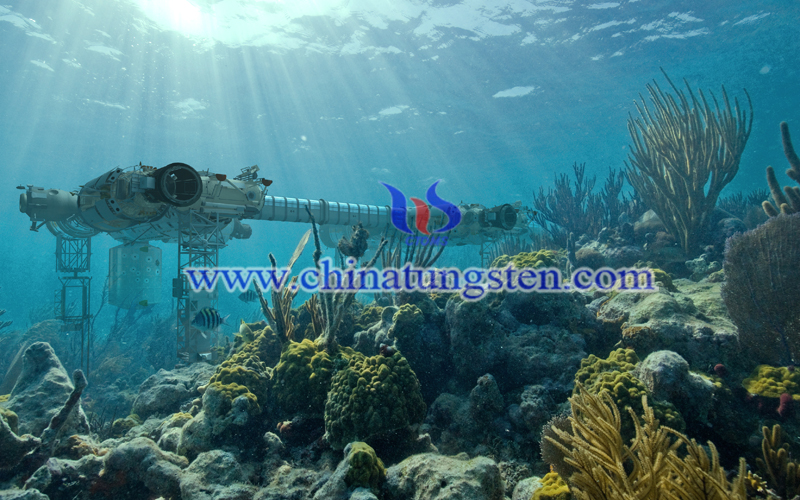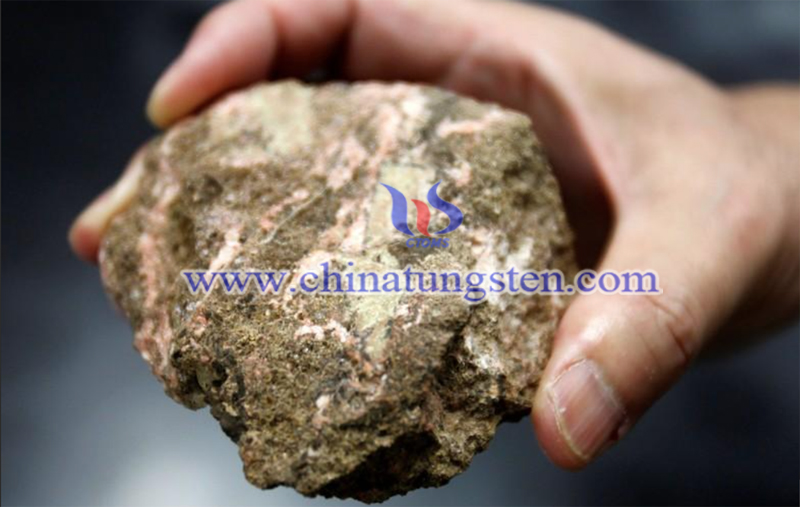"Undersea Discovery Plan" Explores Deep-Sea Rare Earths
- Details
- Category: Tungsten's News
- Published on Monday, 13 January 2020 18:04
In the exploration and development of marine mineral resources such as deep-sea rare earths and natural gas hydrates, the undersea discovery plan of the Pilot National Laboratory for Marine Science and Technology (Qingdao) has made major breakthroughs in 2019. The Pilot National Laboratory for Marine Science and Technology (Qingdao)'s 2019 Academic Annual Meeting, was held from January 11 to 12, took stock of the highlights of the past year.

According to incomplete statistics, nearly 30 high-level papers published by Pilot National Laboratory for Marine Science and Technology in international authoritative academic journals such as Nature and Science last year have maintained a 26% growth for four consecutive years.
Last year, the Pilot National Laboratory for Marine Science and Technology stood at the forefront of world science and technology and made vital progress facing major national strategic needs and the main battlefield of the economy, focusing on major research tasks such as transparent oceans, blue development, undersea discovery, and marine technology.
Among them, the undersea discovery plan aims to reveal the key geological evolution laws of the seabed, support the development and utilization of strategic mineral resources on the seabed, collaborate innovation and technical research on ocean drilling and deep-time global changes, as well as explore the mineralization of submarine oil, gas, and rare earth.
In 2019, the undersea discovery plan deepened the comprehension of the source-sink process of the Asian continent and the evolution of the Western Pacific-Asian marginal sea basin, made major breakthroughs in the exploration and development of marine mineral resources such as natural gas hydrates and rare earths as well, and revealed the distribution rules and mineralization mechanisms of deep-sea rare earths.

Focusing on major national scientific and application demand such as marine scientific cognition, climate change, deep-sea rare earths development, and rights protection, the pilot lab deploys a series of three-dimensional intelligence such as new types of satellite remote sensing, water surface and underwater intelligent mobile networking observation, and underwater observation detection.
Based on the construction concept of "traction of major facilities, the innovation of sharing mechanism, and support of basic conditions", the Pilot National Laboratory for Marine Science and Technology vigorously promotes the construction, operation, and open sharing of public scientific research platforms. These platforms provide 76 scientific research teams with 19 services including scientific computing, voyage sharing, analysis and testing, and support 118 scientific research tasks.
- Rare Earth Manufacturer & Supplier, Chinatungsten Online: www.chinatungsten.com
- Tungsten News & Prices of China Tungsten Industry Association: www.ctia.com.cn
- Molybdenum News & Price: news.molybdenum.com.cn
- Tel.: 86 592 5129696; Fax: 86 592 5129797; Email: sales@chinatungsten.com



 sales@chinatungsten.com
sales@chinatungsten.com